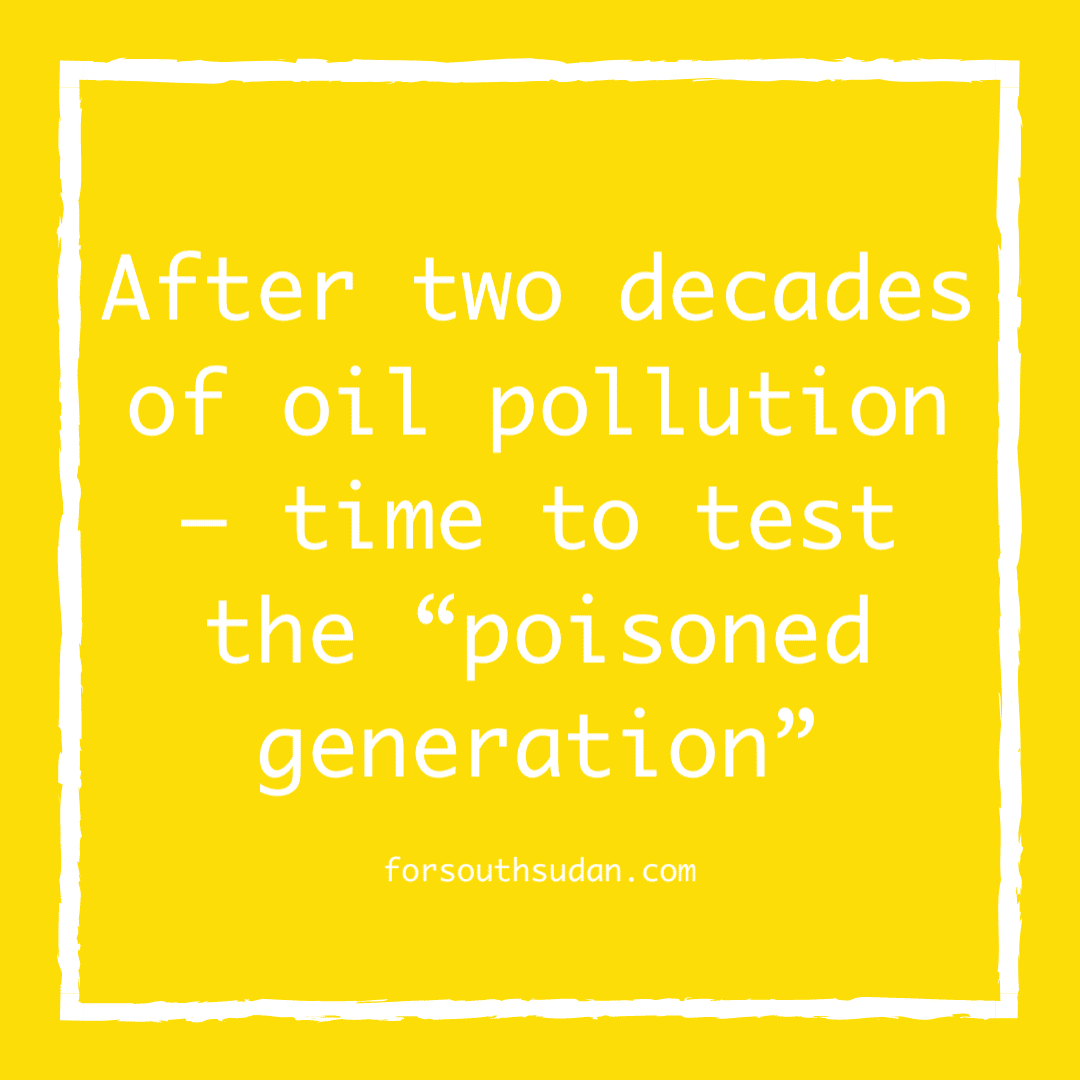Large-scale oil production was launched in 1999 in what is now South Sudan.
The commencement of production was accompanied by a widespread disregarding of standards of and regulations on the proper disposal of the “produced water” – containing heavy metals and toxic chemicals – ensuing from the pumping of oil.
Also ensuing from the 21 years of full-scale oil production and transportation in South Sudan: pipeline ruptures, facility fires and other causes of oil spills, leaks and incineration.
What this all means: that 21 years of oil production have gone hand-in-hand with 21 years of ever-greater oil pollution.
Now add in a further fact.
18.5 is the median age of the population of South Sudan, according to statista.com.
So all these many, many under-21s that live in and near the country’s huge oilfields and long pipelines have been exposed to ever-greater amount of pollutants – via their seeping into their water and thus into these young peoples’ bodies and on their land.
Another fact details the devastating nature of this poisoning of human, livestock and environmental health: South Sudan has the world’s highest levels of oil pollution, reports an authoritative investigation and analysis led by Professor Fritz Pragst, one of the world’s leading forensic toxicologists.
With the notable exception of the those conducted by German NGO Sign of Hope and by the scientists working with it, no systematic, objective and encompassing tests have been made of the population in the vicinity of oil fields.
Although this is quite obviously a matter of grave and great urgency – in view of the reports multiplying of an ever-greater number of deformed infants, stillbirths, miscarriages, infertility, brain damage and other grave ailments.
Such widespread and scientific testing forms part of the environmental and societal audit long promised by the government of South Sudan – an audit allegedly yet to be planned and launched.
The government’s failure to live up to this and to many other commitments has caused oil field residents and their supporters to take the unprecedented step of launching a lawsuit against their government in an international court of law.
The plaintiffs’ brief lists dozens of alleged breaches of standards and regulations committed by oil companies – and condoned and abetted by the government.



